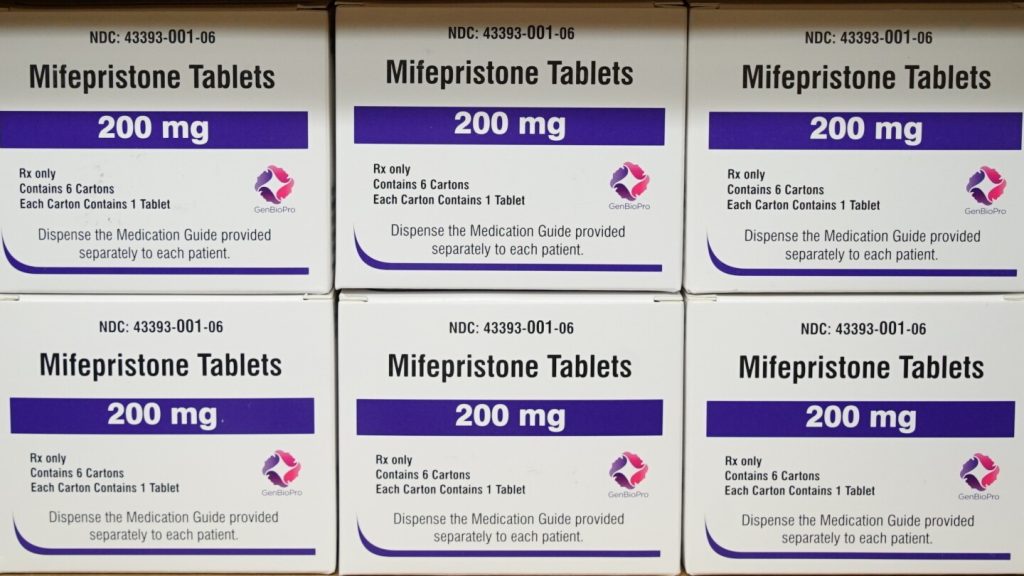The U.S. Supreme Court is set to hear a case that could impact women’s access to mifepristone, one of the pills used in medication abortions. The dispute revolves around whether the Food and Drug Administration overlooked safety concerns when making mifepristone more accessible, including through mail-order pharmacies. The safety of the pill is described differently by medical professionals, who consider it one of the safest FDA-approved medications, and by conservative groups who attribute thousands of emergency complications to the drug. Earlier this year, two studies claiming harms from mifepristone were retracted, casting doubt on the claims of safety concerns.
Mifepristone was approved by the FDA in 2000 as a safe and effective method for ending early pregnancies. The FDA initially imposed strict safety limits on the drug, requiring it to be prescribed by specially certified physicians and administered in three in-person appointments with patients. These restrictions were gradually eased over the years, culminating in a 2021 decision to remove all in-person requirements and allow the pill to be distributed through mail. Despite the relaxing of restrictions, serious adverse events related to mifepristone remain rare, with a small fraction of patients experiencing major complications.
Abortion opponents argue that the less stringent restrictions on mifepristone have led to an increase in emergency complications. However, medical professionals contend that only a small percentage of patients experience major adverse events after taking the medication. Studies have shown that significant complications, such as infections, excessive bleeding, or hospitalization, occur in less than 0.32% of medication abortion patients. The labeling for mifepristone tablets also provides statistics on serious adverse reactions, including transfusions, sepsis, and hospitalizations related to the procedure.
Patients may visit the emergency room after taking mifepristone for various reasons, ranging from concerns about prolonged bleeding to seeking reassurance. While some ER visits may be related to actual complications, others may result from stigma or lack of access to primary care providers. Studies have shown that a significant portion of patients who visit the ER after medication abortions receive only observational care or no treatment. Despite these visits, mifepristone remains highly effective in ending pregnancies, with a success rate of 97.4%. In a small percentage of cases, a surgical intervention may be required, and in even fewer cases, the pregnancy continues.
The safety and effectiveness of mifepristone are comparable to other FDA-approved medications, with adverse events and complications being rare. The drug’s safety record, including the extremely low rate of deaths linked to its use, is likened to common over-the-counter medications like ibuprofen. The FDA evaluates drug approvals based on factors such as effectiveness and safety, recognizing that no drug is without risks. Mifepristone has been used by millions of patients since its approval, with a minimal number of deaths reported. Medical organizations advocate for maintaining access to mifepristone, citing its safety profile and effectiveness in ending pregnancies.


